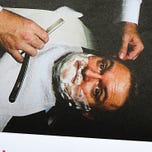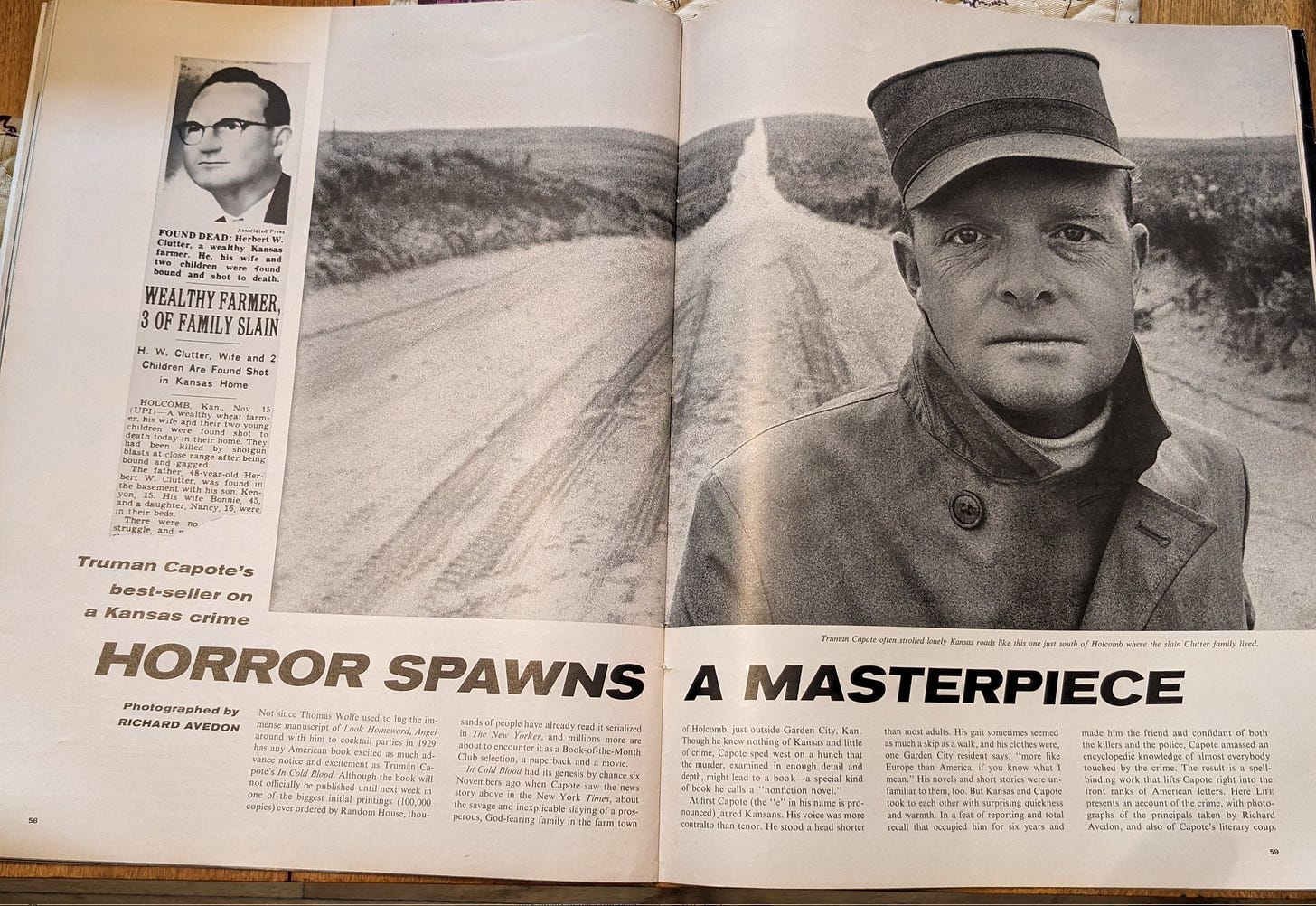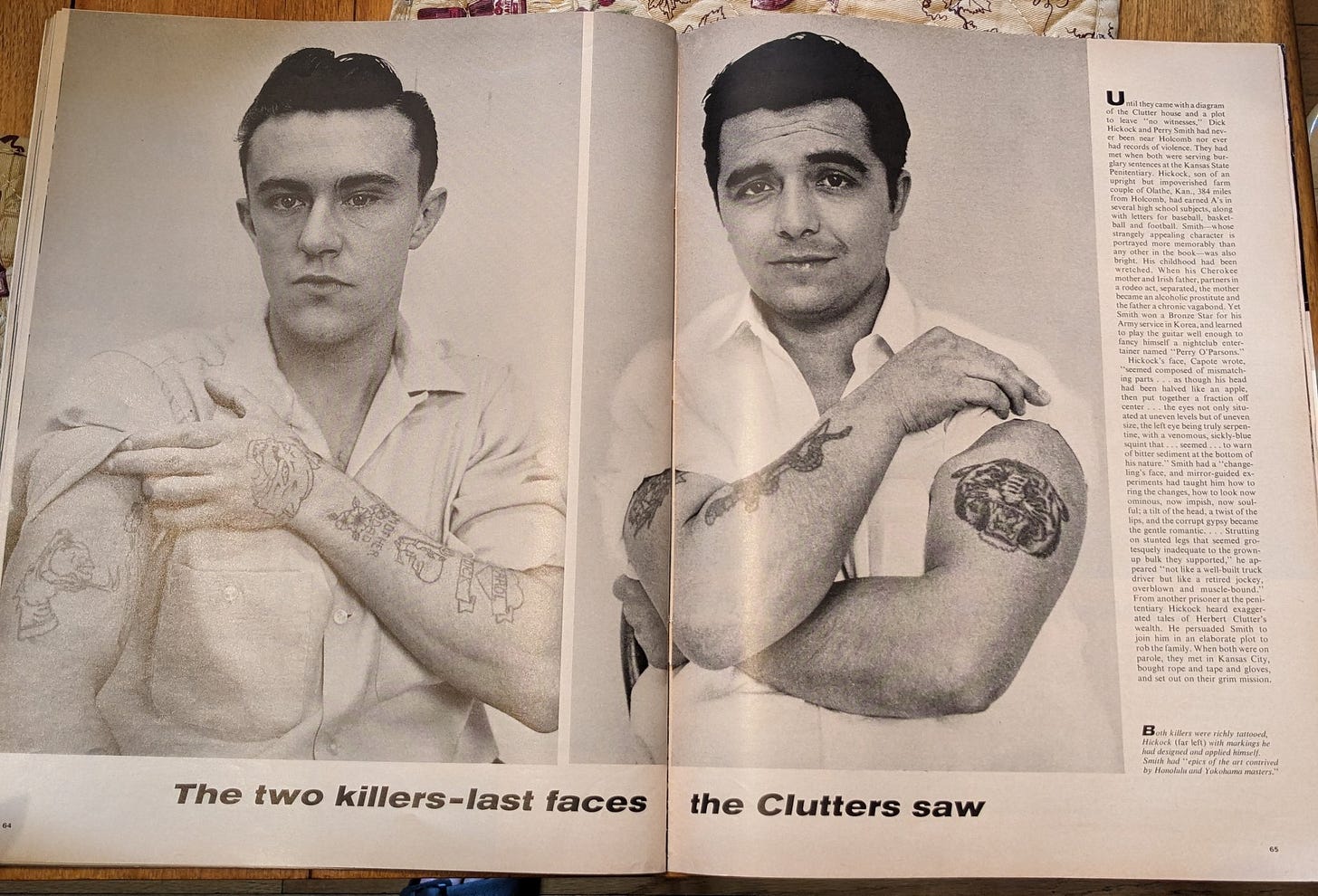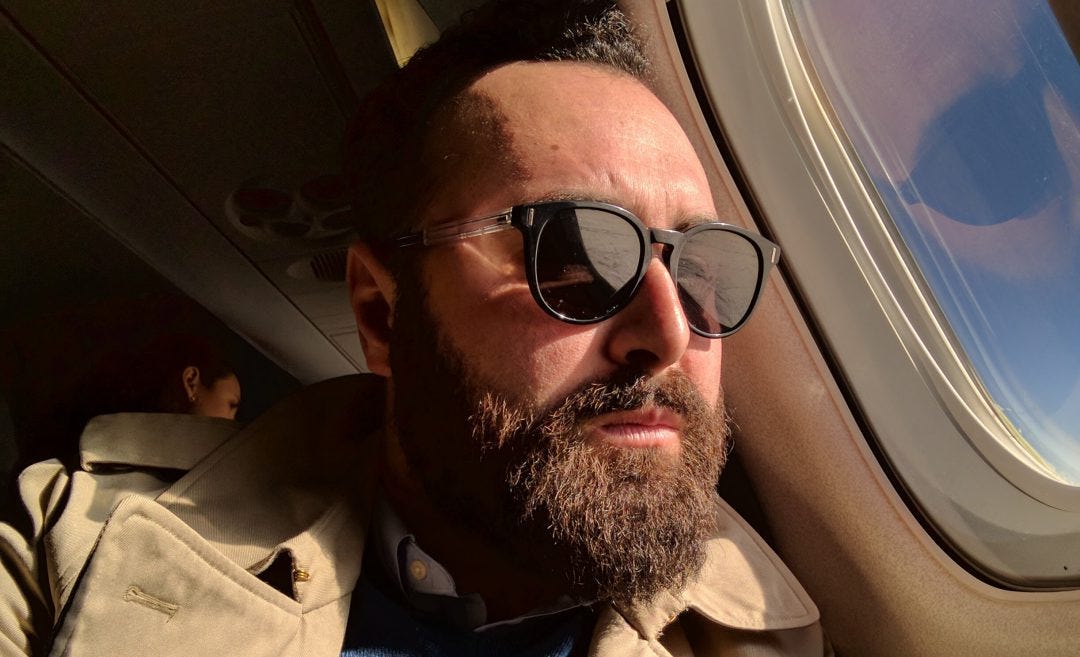When you think of it, content aside, there’s actually quite a bit more to love in a magazine than there is in a book. Take photographs. The January 7, 1966 issue of Life magazine that I recently picked up, features a story on Truman Capote’s In Cold Blood. It’s plastered
with a slew of great shots
by Richard Avedon.
Then there’s the stuff that illustrates the articles, in this case, an image of the news story that Capote happened upon, detailing the murder of H.W. Clutter, and his wife and two sons; their “savage, inexplicable slaying in Holcomb, Kansas. As the article puts it, Capote sped West on a hunch that the murders, if examined in enough detail, might lead to a special kind of book, what he called, a “non-fiction novel.” Kansas and Capote took to each other, with surprising “quickness and warmth,” says the article.
Friend and confidant of both killers and police, Capote, the article continues, amassed an “encyclopedic knowledge” of almost everyone touched by the crime. His mission was to “dig to the roots” of every aspect of the crime in order to truly comprehend the viewpoints of the victims, criminals and mourners. To do this he had to apply the craft of listening, something at which he was a master. What interests me, he’s quoted as saying, are not the little nuances of my own life, but of the lives of people around me. Too many writers, he says, are mesmerized by their own navels.
What mattered to him was to get to know the people he interviewed as well as he knew himself. In short, become their friends. Both of the murderers, for example, ended up asking him to be a witness. Perry wrote him a hundred page farewell letter. Both their graves were marked with gravestones paid for by Capote.
Interestingly, he never took notes when he interviewed people - felt it made them feel self-conscious and inhibited. “It makes them say what they think you expect them to say,” he said. So he taught himself to be his own tape recorder, typically going to motels shortly after his conversations to type out what was in his head.
I’ve covered crime fiction on The Biblio File over the years, interviewing the likes of Denise Mina, Bill Deverell, and others. Now it’s time for true crime.
Michael Lista is an investigative journalist, essayist and poet who lives in Toronto. I’ve followed his career for some fifteen years now. He’s written true crime for the better part of a decade. His story “The Sting” is being adapted by Adam Perlman, Robert Downey Jr., and Team Downey into a television series for Apple TV+.
We talk here about Michael’s recent book of true crime stories, The Human Scale, about Capote and listening and details, about being honest when talking with people who’ve experienced crises, and how tawdry it is to ask for exclusivity; about examining systems, and how tardy justice can sometimes be; about how the story resides in the telling, and how Shakespeare stuck his landings; about understanding who we really are; fact-checked fairy tales; competing against YouTube and Netflix; and much more.
















Share this post